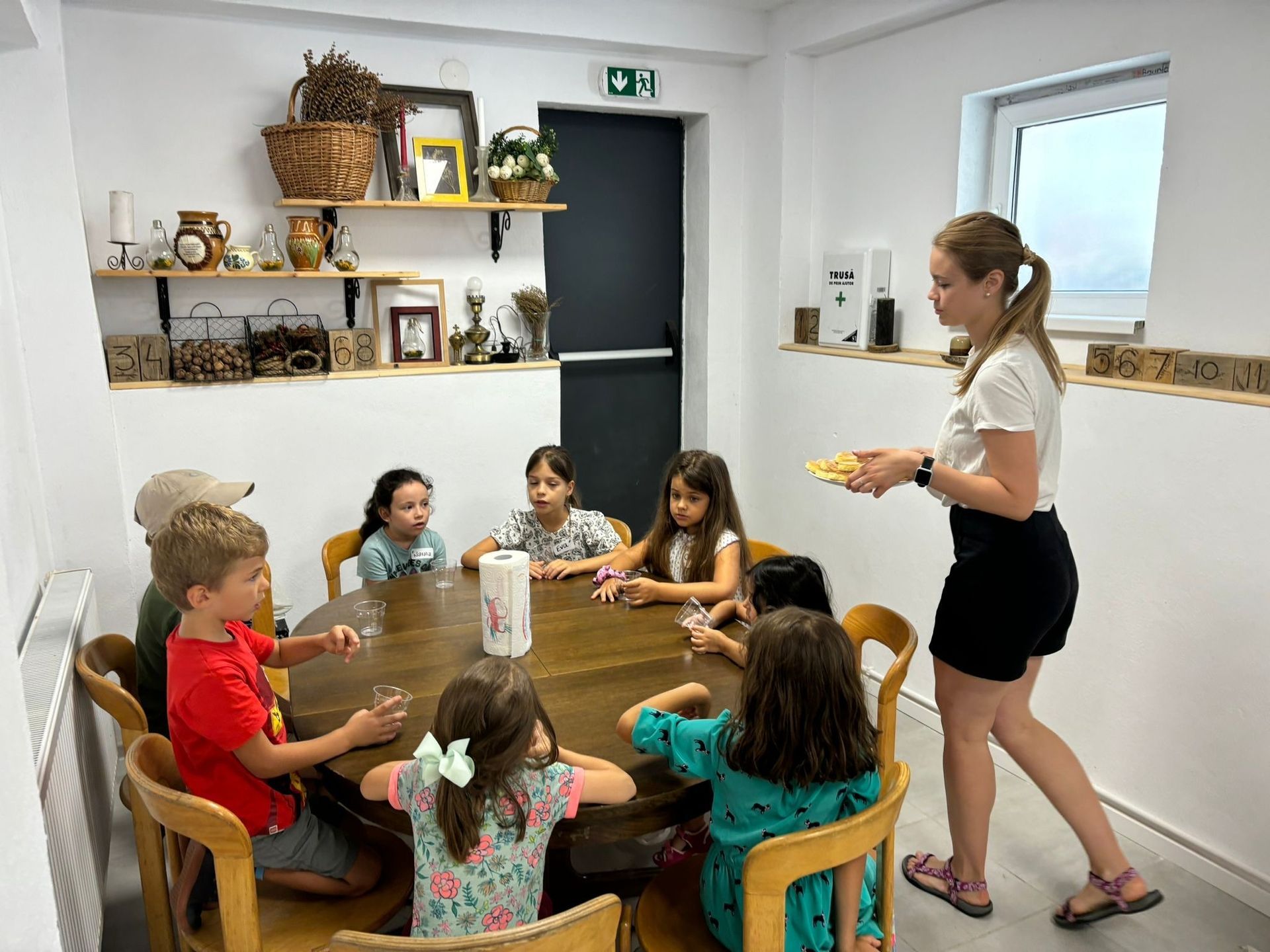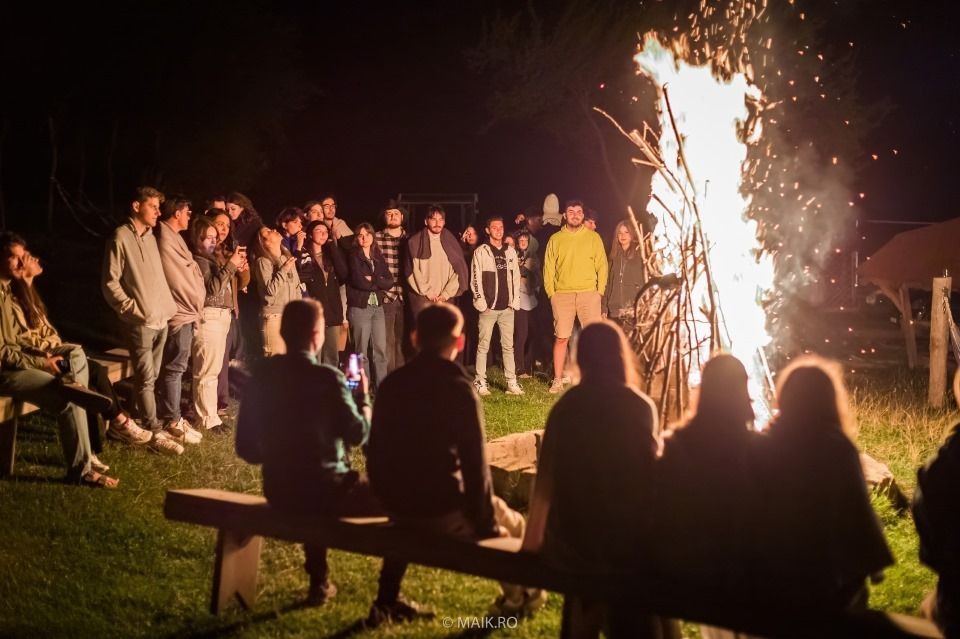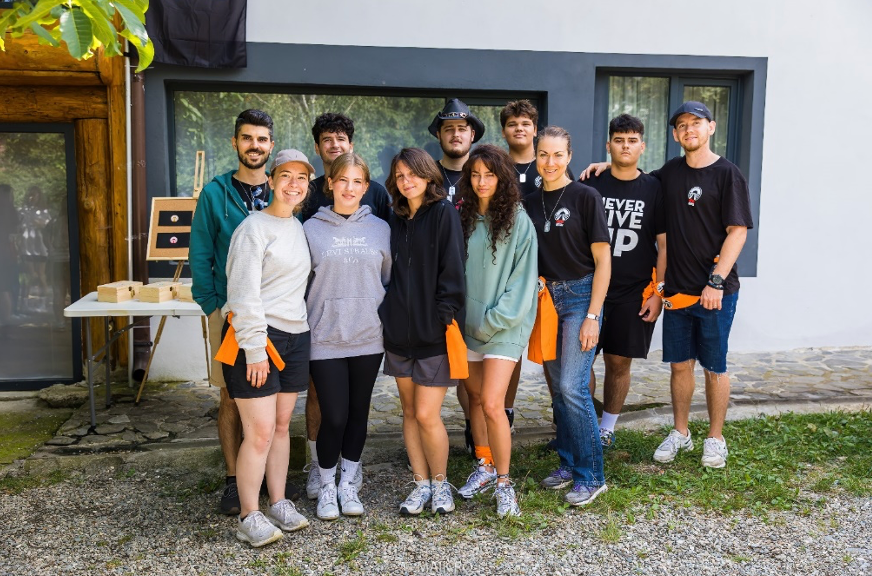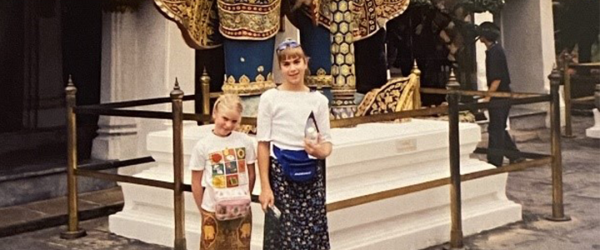
How Summer Activities Enhance Year-Long Ministry
What comes to your mind when you think of summer? In SEND Europe, summer is a scrapbook of uplifting stories and core memories. A student from the Czech Republic helps teach English in Romania. A group of students from Croatia encourages a church in Poland. A multicultural team serves at a community center in Spain. A group of Romanians joins American missionaries in Croatia to evangelize in a tourist area. American missionaries help lead a college camp in Romania and serve on a mission trip to Moldova. Teams and interns from the United States serve at summer programs in Macedonia, Albania, and Poland. A group from Great Britain helps facilitate a teen camp in Romania. All these summer activities took place in Europe during the summer of 2024. In a variety of ways, these activities will have long-term effects on the year-long ministry happening in Europe.
They open doors for more recurring activities
Back in 2012, SEND facilitated a summer missions trip called LOVE Europe to encourage youth from America to consider serving as missionaries in Europe. In July 2024, LOVE Europe was reinvented, with European youth participating in a week-long mission trip in another country, serving on multicultural teams to strengthen their faith and consider God’s place for them in Kingdom work.
Anastasia, a young lady from the Czech Republic, served alongside SEND missionaries in Craiova, Romania, to host a three-day English camp for kids. Her enthusiasm for cooking really inspired and enhanced the theme and activities for the week of English camp. Together, the team taught the children English words for a variety of foods and drinks, practiced how to ask for or order something, and learned fun English songs related to the theme. The children also heard how Jesus is the Vine, the Bread of Life, and the Living Water. Of the 20 children who attended the camp, several are not actively involved in a church community, so this was a wonderful opportunity to share the truth and love of Jesus with them.

This camp was the first time the SEND team in Romania has hosted an English outreach ministry and it seems to have opened the door for more opportunities. For one family, it rekindled friendships with SEND missionaries, and more meetings are already planned. For another unbelieving family, it built trust between them and a local church community. As neighbors of SEND missionaries, more conversations have already happened. In addition, several parents have asked the SEND team to consider leading more English language events for kids and adults. Our team in Craiova is actively seeking ways to engage the broader community using English as a second language.
Please pray for more European youth to serve cross-culturally. Ask God to give the team in Romania wisdom on how to engage the community with the gospel by teaching English
They sustain connections with the people we serve
Youth camps happen all around Europe during the summer months, most typically in July and August. I’ve heard of at least seven camps that SEND missionaries have been involved with this summer, and although this story comes from just one of them, I know it represents many others. One SEND missionary shared that at the college summer camp students had deeper discussions and asked more questions than typical of a usual college event night. During the school year, the college group meets at least once a month for a few hours, but the night is planned with activities, leaving little time for long conversations. While at camp though, students sit with one another and their leaders late into the evening, asking questions about the importance of attending church and the value of discipleship.
As with many young students, questions about religion are common during college years, and students in Europe are no different. They are looking for people to sit with them, hear their stories, and answer their questions.
For many students, this is their first time at a Christian event; for others, they’ve been on the margins of the church for a while, and a few are actively looking to grow in their faith. While at summer camp with these students, SEND missionaries, along with their national partners, can just be present with the students, listening to where they are in life. Whether hiking or sitting around a campfire, conversations are typically more authentic and meaningful when people have a shared experience. At camp, students open up to their leaders and share more heartfelt stories and questions. After taking the time to really listen, the leaders can then respond as the Spirit leads with gospel encouragement.


The conversations started at camps across Europe have already led to continued discussions at coffee shops or in homes of SEND missionaries. Pray with us for the students to understand the gospel for themselves, to become actively involved in a church, and to pursue discipleship in their home communities. Pray for the SEND missionaries involved in summer camps every year.
They energize the leaders
Although summer programs usually require extra planning and effort on the part of SEND missionaries and local church leaders, they are always worth the effort, especially as we hear stories of how the summer programs have impacted individual lives. One leader in the church reflected on his own story sharing how a summer English camp he attended for college students allowed him to spend countless hours with believers before he ever stepped foot into a church. He left that camp determined to read the Bible to prove the Christians wrong but instead found the truth of the gospel. His story like many others, energizes the church leaders and SEND missionaries to keep going even when the summers are hot, the planning takes months, and the camp days are exhausting. May God receive the glory for each individual who hears the gospel through these summer programs.
Consider how you might serve in God’s kingdom using your English-speaking skills or serving through a summer opportunity. Connect with our SEND Europe team at https://portal.send.org/pq




